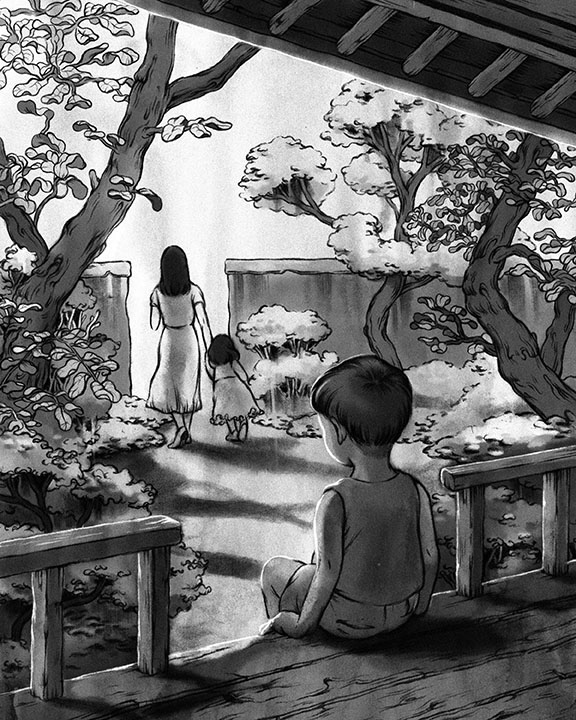
Things should be clearer the second time around. Murakami himself has made a similar suggestion on his English language website, along with the advice that we should try to read the book more than once: I tend to agree with those who said Murakami is having a laugh - and can also sympathise with the idea that the best way to appreciate the novel is just to roll with it. A lot of people made eloquent defences of the novel on last week’s Reading Group post. It’s possible that I’m showing a want of tolerance here, and failing to take the novel on its own terms.

The whimsical deity never leaves the stage - and keeps interrupting the action to show us his bum. It isn’t just that a deus has appeared ex machina to help the plot along. He says he “doesn’t really know” what a “rental car” is - but has no problem with cars themselves, or concepts that are no more or less complicated than rental cars: like bridges, travel, hotels, and the police. To highlight the one that would have had me rage-quitting the novel if I weren’t duty-bound to finish it, Nakata is forever describing himself as “completely empty” and claiming to have no memory, and then - generally within the same paragraph - discussing at length the things he remembers (such as Johnnie Walker killing cats) and how they made him feel (upset). Kafka On The Shore is also full of frustrating inconsistencies. And it wasn’t just the loose ends that caused me problems. Mitchell went on to say that: “For Murakami devotees, this fantasy’s loose ends will tantalise to his admirers, they may invite flummoxed interpretation but for the unconvinced, they will just dangle, rather ropily.”įor me, they’re dangling ropily. Is Mrs Saeki really Kafka’s mother? (The answer, given to Kafka, is “you know the answer”.) Is Sakura, a fellow passenger Kafka meets early in the novel and “rapes” in a dream later on, really his sister? Did Kafka actually kill his own father in another dream using Nakata as an unconscious proxy? Is the Boy Named Crow, Kafka’s occasional companion, Kafka’s familiar, his superego, or his what? Is a giant evil slug crawling across a Takamatsu apartment an incarnation of Kafka’s father trying to enter the netherworld?


The mythic motifs also remain frustratingly shady. The wartime X-File is revisited only once, the UFO is never explained, and the spectral village between the worlds serves little discernible function, beyond being a place for Kafka to escape to and then a place to escape from. There were, as David Mitchell elegantly summarises, a lot of unanswered questions:

The nearer I got to the end, the further I felt from grasping anything of any real weight. I’ve now finished Kafka On The Shore - but I don’t feel as if I’ve got much closer to getting to grips with it than last week.


 0 kommentar(er)
0 kommentar(er)
